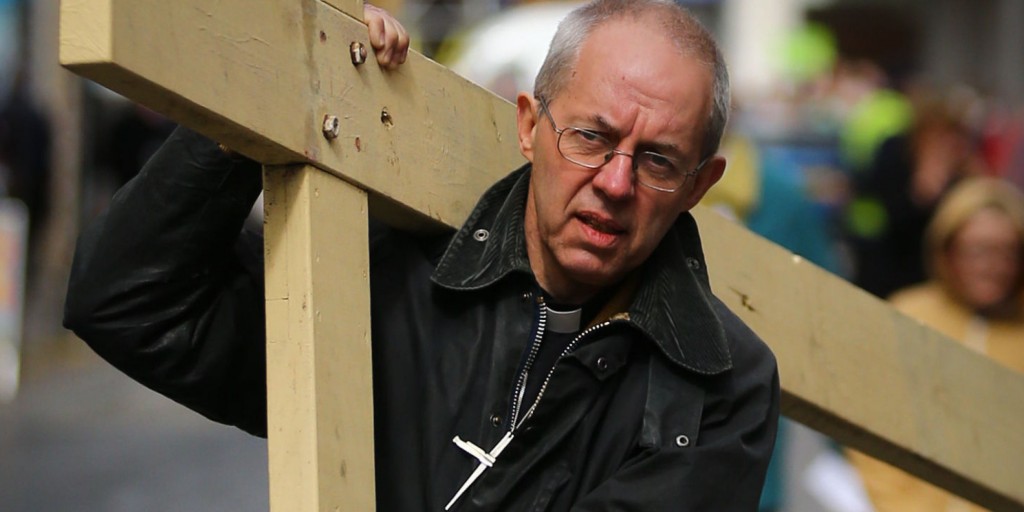In the UK, the government has established an independent body to examine how well institutions and organizations in England and Wales have taken seriously their responsibility to protect children. The group is known as the Independent Inquiry into Child Sexual Abuse or IICSA, for short.
Among the institutions the Inquiry has looked at was the Church of England, and specifically the diocese of Chichester. Recently concluded hearings offered a damning look at the failures of leadership within the dioceses and church.
Archbishop Justin Welby, in his own testimony before the Inquiry spoke of how the church often just causes more harm when victims come forward;
I think the use of the word “harm” is a really important one. What is clear to me is that, at the moment, everything seems to take a very, very long time and is very unclear indeed when it comes to redress. I am frustrated to a degree, and I think everyone else involved is — who is involved in the process is, that we end up hurting people more because we just don’t — it doesn’t seem to flow. People aren’t informed, they aren’t told what’s going on. It can take three or four years, and you end up damaging the survivors and victims more. You abuse them in the way you keep them waiting. And, for that matter, you don’t do justice to the perpetrator, and at the heart of this has to be justice, and justice is a very, very difficult thing to find, as you know much better than I do, but we have to have a system that delivers justice. That is so important. And if it doesn’t, it’s not good enough.
He also spoke of how the church has failed to live into the vision of being a safe place for all, and how he was ashamed of that failing;
“you’ve put your finger on what I dream of. It won’t happen in my time, I fear. But the church should be a place where people can go for safety and to be valued and loved, and on safeguarding, that is achievable, not only because it would be a safe church in itself, but because it cares for those who come to it…
…Now, that’s what the church should be doing in this area. So I agree. I mean, you have picked up something that’s very, very much on my own heart. That’s why it’s so shaming and humiliating and appalling that the church has gone — not just missed the mark on that vision, but has gone to the opposite extreme in cases, many cases.
The response to the inquiry and the Archbishop’s testimony has been significant and multi-faceted. You can check that out here, here, here and here at Thinking Anglicans’ excellent roundups
In his testimony, the Archbishop also noted that a significant contributing factor to the prevalence of abuse and coverup of abuse was a misguided theology of forgiveness, suggesting that significant theological work was needed;
Yes, there is a theological tradition that says that God wipes our sins out, but you still have consequences. This isn’t Eternity. This is Planet Earth. You still have consequences. If you have abused, you can repent genuinely. You will still go to prison, or you should still go to prison. It doesn’t mean you are not forgiven, it just means you did X, Y follows. Results follow consequences. That is, frankly, very — you know, it is Christian theology 101. This is not advanced thinking about forgiveness
…I think particularly around the area of interpersonal forgiveness. How do we understand what it looks like, how do we understand what reconciliation looks like, what can we say about it that is positive that does not add burdens to those who are survivors and victims of abuse? Because those are the people who really matter in this. You have got to start off by saying, “How do we talk about this in the context of safeguarding in a way that 4 does not make what they have already suffered even worse?” and I think that’s where the further work particularly needs thinking about.
It is likely that the Church of England is nearing an inflection point on the issue of safeguarding. The Inquiry has pulled back the curtain to reveal a dispiriting amount of ugliness, violence, and meanness at every level. A clear reckoning with its reality versus its vision of itself will be necessary if the church truly desires to be a movement for good in the example of Christ.
As Linda Woodhead, a Professor of Sociology of Religion at Lancaster University wrote in an editorial at Church Times, “Like an alcoholic, the C of E has now to make a searching and fearless moral inventory, admit the exact nature of its wrongs, and make amends to those whom it has harmed so dreadfully. Only with their help can it possibly recover.”

